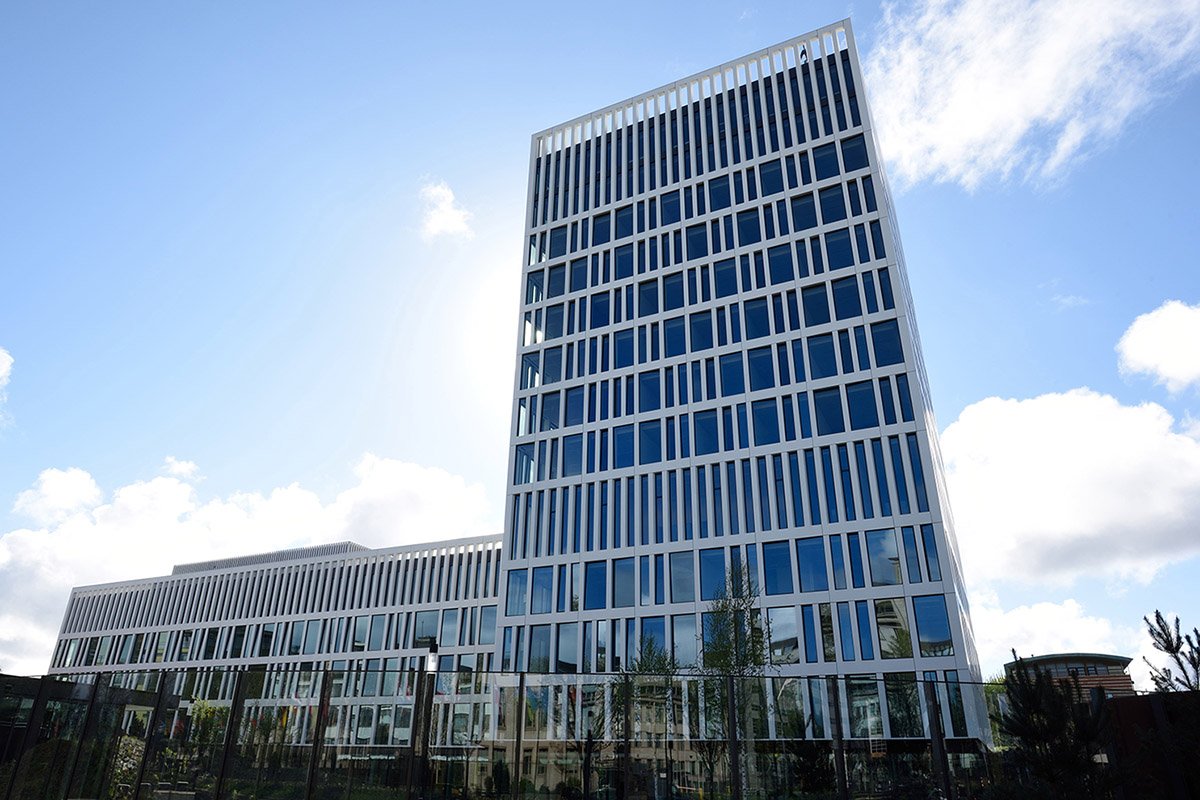EU States Commit €2.5 million to ICC Investigation of Russian War Crimes in Ukraine
This is outside the Eurojust building, The Hague, Netherlands (Wikimedia Commons).
The foreign ministers of Germany, Sweden, and the Netherlands announced on April 11 their commitment to give €2.5 million ($2.7 million) towards the International Criminal Court’s (ICC) investigation into Russian war crimes committed in Ukraine following the February 2022 invasion, according to Barron’s. As early as February 28, just days after Russian troops began their attack on the Ukrainian capital of Kyiv, ICC Prosecutor Karim Khan declared his intention to seek court approval to begin investigating alleged war crimes. Exactly one month later, on March 28, the European Union Agency for Criminal Justice Cooperation (EuroJust) published a press release announcing a Joint Investigative Team (JIT) with Lithuania, Poland, and Ukraine, alongside the ICC. The European Union also promised €7.5 million towards training Ukrainian prosecutors to investigate violations of international law, as the Brussels Times reports.
According to the Council on Foreign Relations, until the 1990s, war crimes tribunals had been established on an ad hoc basis by the United Nations following the Allies’ establishment of the International Military Tribunal, the first war crimes court created to prosecute Nazi officials. In July of 1998, the UN General Assembly approved the Rome Statute, which would finally establish a permanent court. Today, 123 states recognize the Rome Statute, though some, including the United States, Iran, and Russia, never officially signed the pact.
EuroJust, while focused on resolving disputes between multiple EU states, additionally offers a variety of institutions and tools that have permitted the agency to resolve violations of international law outside of the EU. In a statement published on April 4, the European Commission reported European Commission President Ursula von der Leyen’s collaboration with Ukrainian President Volodymyr Zelenskyy via the JIT to send EU investigators to Ukraine following reports of “heinous crimes” in Bucha.
Human Rights Watch (HRW) reports dozens of atrocious acts committed by Russian soldiers against Ukrainian civilians, ranging from the seizure of necessities like firewood and food from dying and stranded noncombatants to horrifying accounts of summary executions, violence, and rape. For older generations, this behavior mirrors a similar brutality committed by Russian forces in Chechnya over twenty two years ago, as HRW reports of the time describe an unsettling parallel of murder and sexual violence perpetrated against civilians.
Difficulties remain in the process of prosecuting the individuals responsible for these crimes. Catherine Gegout, a research fellow at the University of Nottingham, explains in an analysis for The Conversation that the ICC may be unable to charge Russian actors, specifically Vladimir Putin, because of the complexities of international law. The ICC, a relatively new institution within the realm of global politics, has convicted only six people. Investigations can take years and prosecutors must prove intent to commit war crimes.
The outcome of future trials will depend on what results from these investigations. According to the Guardian, after visiting Bucha on April 9, EC President von der Leyen stated, reflecting upon the atrocities committed in the war torn city: “If this is not a war crime, what is a war crime?”

